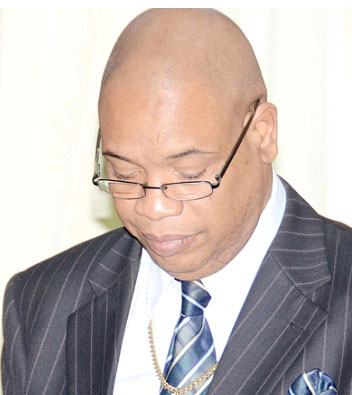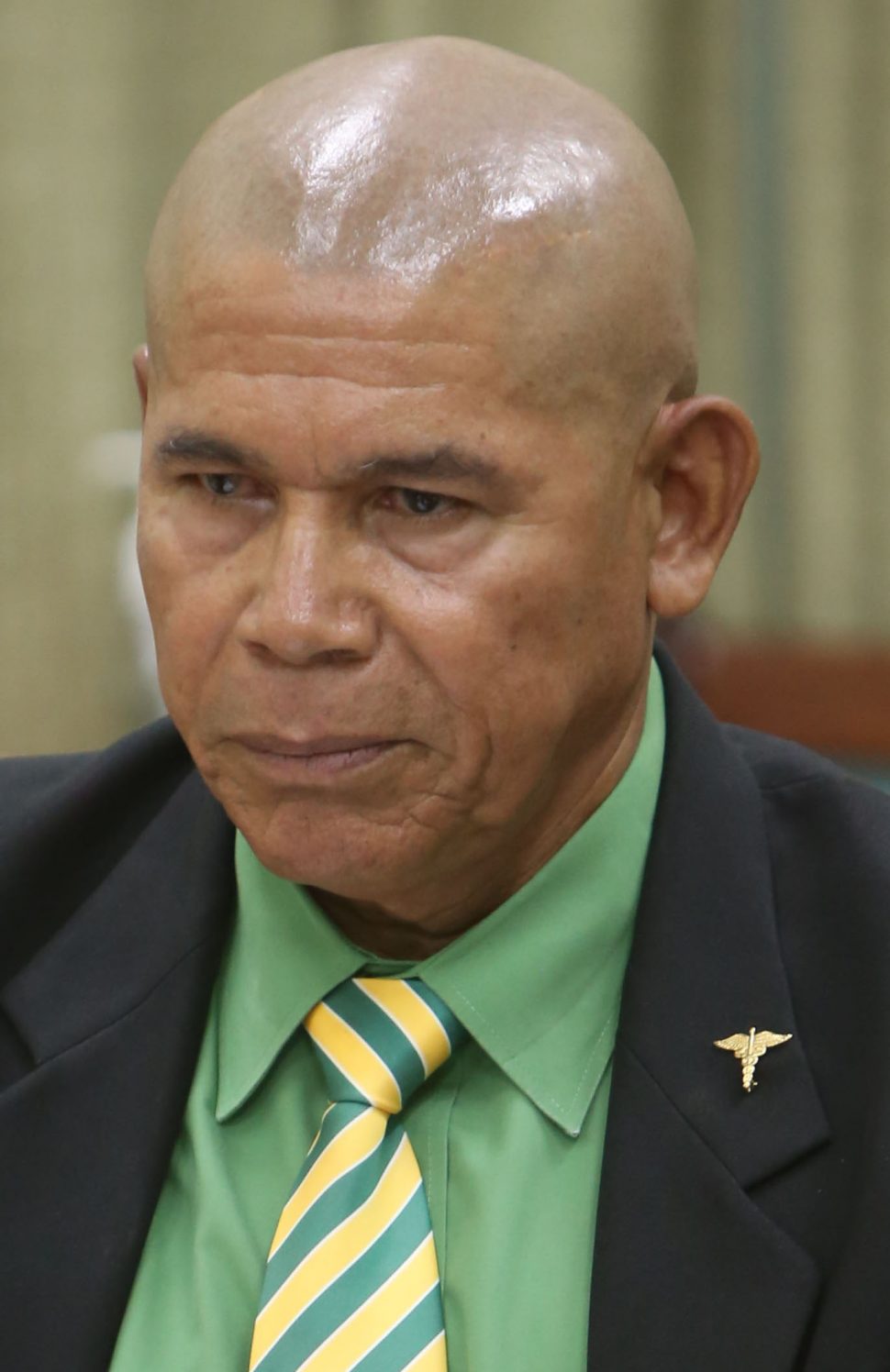Since their establishment some eight years ago, the constitutional rights commissions have made no serious impact on the quality of life in the sectors they were supposed to defend and promote, according to Guyana Human Rights Association (GHRA) Co-President Mike McCormack, who says Parliament should evaluate their success instead of moving to renew them.
“Their statutory life is over. Whether they still continue to function, they don’t impact on public life to any great extent, certainly not in any systematic way,” McCormack told Stabroek News.
“None of the commissions has pursued or promoted their concerns in a rights-based framework though they make reference to rights. They began operating like non-governmental organisations seeking funding for their projects,” he added.

The country’s constitution provides for the establishment of five commissions for three-year terms. The majority of the commissions established have been criticised for being non-functioning or not being legally constituted at present.
On July 30th this year, Chairman of the Committee of Appointments Dr George Norton, who is also Social Cohesion Minister, withdrew a motion in the Parliament to approve the appointment of members of the Rights of the Child Commission (RCC) after Opposition Member of Parliament (MP) Juan Edghill said the motion would require a two-thirds majority vote and the opposition was not prepared to support it without consensus.
More recently, on the order paper is the scheduled debate of the motion for the appointment of members of the Indigenous Peoples’ Commission (IPC). This motion had been recurring on the order paper for some months before the parliamentary recess.
Norton told this newspaper that the expired commissions have been meeting because they have been receiving subventions from the state and they have been continuing the work they have begun even though they have not been reappointed.
“We have to get the commissions up to date,” he said. The Committee of Appoint-ments is due to meet fortnightly but in recent times, he said, the Opposition MPs have not been attending the meetings, which is stymieing the work of the committee. “Yet, we are blamed for feet dragging,” he lamented.
In response, Edghill said Norton was being dishonest by blaming the opposition. “He is either manifesting his incompetence or he has a slip that he is slavishly reading,” he said.
To be debated in the Parliament, Edghill said, are the two motions for the appointment of members to the RCC and the IPC and the entities to be consulted.
At the level of the committee, he said, government uses its slim majority to get its way without consensus, but without consensus, Government will not be able to get the two-thirds majority support required in the Parliament.
“Government must take full responsibility for not appointing new members to the commissions and not try to hide behind the opposition,” he said.
Lost opportunities
The Ethnic Relations Commission (ERC) was constituted in 2003 and Edghill was its first chairman. He resigned in 2011. The ERC was reconstituted in February this year. Dr John Oswald Smith is its new chair.
The RCC commissioners were sworn in in May, 2009. Most of the commissioners appointed then continue to function.
The Women and Gender Equality Commission (WGEC) was constituted in August, 2009 and the IPC in September, 2010. Former Toshao Doreen Jacobis of Tapakuma Village, Essequibo Coast was the IPC’s first chairperson.
Since the three-year term of the commissions ended, no commissioner could say if their term was legally extended.
Of the IPC, Indigenous peoples’ rights activist Laura George, of the Amerindian Peoples Association (APA) said, “The IPC has been inaccessible. I don’t know if Indigenous peoples have been able to access their offices and mechanisms to channel their concerns and recommendations.”
The IPC’s mandate, she said, is a good base to recommend legislative changes to policies or reforms in the interests of Indigenous Peoples.
“I have seen media reports of the IPC submitting reports to the National Assembly but exactly what those reports are or what comes out of them – follow up or implementation – we don’t know,” she added.
To a large extent, she said, members of the IPC have had their own interests, alliances and allegiances when it comes to political spaces.
“The APA has been doing the work of the IPC. For example, we have been making recommendations to government ministries and agencies, including the Ministry of the Presidency, for projects, programmes and policies that we know would affect Indigenous Peoples rights,” she related.
The IPC, which has been submitting reports to the Parliament, George said, has never invited the APA to a meeting, the APA has never contributed to the compilation of the reports, and it has been unable to access the reports.
“Those reports would contain concerns and recommendations from communities and advocacy organisations like the APA. We haven’t heard anything from them, other than meeting up with them at a workshop here and there,” she said.
The secretariat carrying out mundane functions to keep it afloat, she said, is an injustice to Indigenous peoples.
“I think we have lost opportunities where we could have collaborated on a lot of work and make representations and interventions stronger.”
On reports that IPC commissioners were going into areas like the troubled village of Baramita, in Region One, she said, “One wonders what strategic direction they are providing.” The APA, she said, had submitted a report to the Ministry of Indigenous Peoples’ Affairs on the negative impact the extractive industry was having in Baramita. The APA was hoping, she said, it could have been a part of a strategic work team to address the issues. It later learned that a task force without civil society’s involvement.
Tremendous work
Meanwhile, the WGEC, chaired by Opposition MP Indra Chandarpal, continues to meet monthly as it continues to work on a five-year strategic work plan.
Women and children rights activist Vanda Radzik told Stabroek News that the WGEC commissioners were asked to stay on after their term had expired. They have been producing and submitting reports to the Parliament annually.
In relation to representation on the commissions, she said, “We have gone overboard with multi-stakeholders representation. That has its place. If you are a constitutional commission dealing with gender legislation, women’s rights, rights based stuff, what you need is a bunch of experts and not any and every one.”
The work of the WGEC has been tremendous but was never given media coverage, she said.
“Over the last year or two, we have been working on legislation for sexual harassment in the workplace. It is rampant all across Guyana. We have had several workshops where women have said they have been harassed at the workplace. They have told of how they are denied jobs if they refuse to sleep with whoever.”
After years of doing work on domestic violence, she said, “People are now more aware of it and there is some intervention.”
The WGEC, Radzik said, also worked with others on the amendments to the Domestic Violence Act to include provisions for dealing with sexual assaults on both male and female.
One commission
Noting that last year, government began the process to select commissioners by asking groups to make nominations, McCormack said, “We did not participate. We took part in the first one but we are not participating in anything else.”
From day one, he said, the GRHA had indicated that it would prefer one human rights commission with commissions being created where there was a need.
The GRHA and a UN High Commission on Human Rights official and former chair of the Australian Human Rights Commission, Brian Birdekin, advised the Parliament that establishing too many commissions was too ambitious for a Guyanese society that was not comfortable with rights discourse or that had little experience with rights-based organisations.
Birdekin had said that setting up more would be expensive and would be a recipe for turf wars because of duplicating functions, such as an Amerindian girl who encounters a problem not knowing if she should go to the GWEC, the RCC or the IPC. “They did not take him on and the National Assembly approved the formation of all the commissions,” McCormack said.
He said there is no serious commitment to understand the role that rights should play in the life of the country whose laws and practices should progressively be in line with constitutional provisions and international conventions.
“The notion of the right to health, the right to education and the right to adequate food does not impact on policy processes here. We talk about rights-based development but we have no sense of what that means as distinct from growth-based development,” he said.
“A lot of NGOs talk about rights-based but the real weakness in promoting this framework has been civil society,” he said.
Another weakness, he said, has been in the election and selection of the commissioners by permanent secretaries who were political appointees.
The rights commissions, with the exception of the ERC, had their genesis in the constitutional reform process that took place ifrom 1999 to 2000.
In 2007 then president, Bharrat Jagdeo held a meeting with civil society bodies to seek support for his security programme when murders were occurring almost on a daily basis. In exchange for his support, McCormack said, government was to inaugurate the rights commissions. The commissions, with the exception of the Human Rights Commission, the main one, were established, he said, “but they were left to themselves as to how they would interpret their mandates.”





